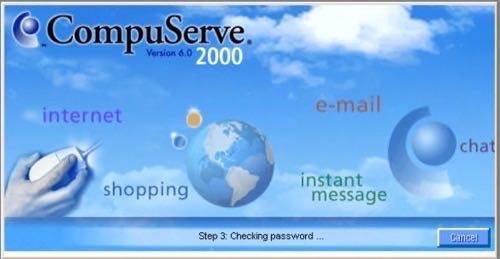
There’s a disturbing trend in content networks today. From NBC Universal to Netflix, once-neutral content networks are now investing in original content, exclusive to their networks. While these are honest attempts to differentiate and create value for customers, they risk Balkanizing content.
It’s CompuServe all over again.
CompuServe: Closed Network, Closed Content
Remember CompuServe? Some of us may remember it as an early pioneer in dial-up Internet access, but its early claim to fame was providing a host of forums only available on CompuServe. It was the Web before the Web existed. Both CompuServe and AOL provided gated communities where members could interact with each other and content found only on their respective networks. For a time, even email was only possible between members of these networks.
This seems quaint, given how the World Wide Web displaced these provincial efforts to contain content and communications, but it’s not terribly different from what we’re seeing today with Netflix. Or, for that matter, Facebook, where so much content is locked up on the not-so-social network.
Balkanizing Content Networks
Netflix has been dabbling with original content to generally positive reviews, and recently signed a deal with Dreamworks to create another 300 hours of programming. This is great news if you’re an existing Netflix subscriber, and it’s a compelling reason to become one if you’re not.
Unless, of course, you’re an Amazon Instant subscriber, in which case you now have two different networks to join. Amazon, not to be outdone by Netflix, is also building out a portfolio of original content. Comcast, once content to provide access to others’ content, has acquired NBC Universal to give its “dumb cable pipes” a torrent of high-value content.
And then there’s HBO. The difference is that while HBO has long created original content like The Sopranos, it has never sought to become an end-to-end provider unto itself. It has always licensed its content to satellite and cable television providers. But maybe HBO doesn’t want to simply be one channel among many. Maybe it also wants to become the whole network? That’s apparently Netflix’s fear, as voiced by Netflix’s chief content officer Ted Sarandos, who argues Netflix must “become HBO faster than HBO can become us.”
Let’s hope he’s wrong, because the last thing we need is to revisit the failed CompuServe experiment.
Content Wants To Be Free
Haven’t we learned anything from the Web? Whether expressed through digital piracy and even Apple’s iTunes, content wants to be free. By this I don’t mean to suggest that consumers want to pay nothing for content, but rather that we want to have convenient, multi-channel access to content. The more networks seek to own and gate content, the more consumers will resist through piracy or simply by not subscribing. Markets get bigger through open access; they constrict when access is closed.
Perhaps Netflix should revisit its fears about HBO. HBO has been successful not merely by creating original content, but by creating original content and making it available on cable and satellite networks, as well as its own streaming service HBO Go. By closing both its network and its content, Netflix is becoming Compuserve. That’s not the best model to follow.

















